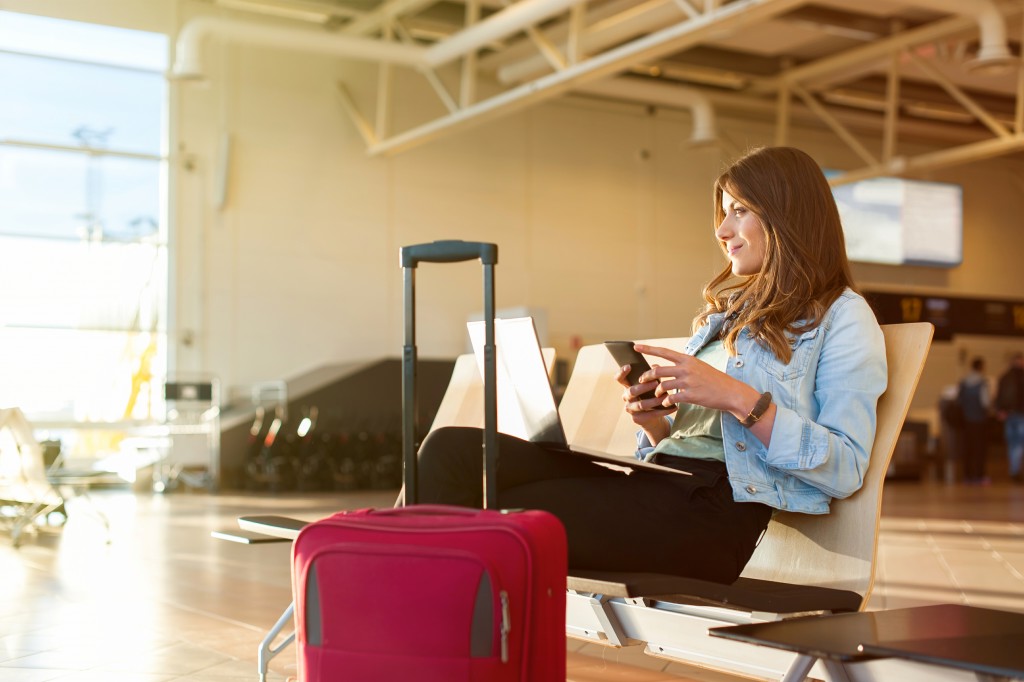Now that the United States is easing travel restrictions for fully vaccinated individuals, probably you’re thinking of flying again or taking the motorhome on the road—whatever works for you.
Traveling is actually great at this time. You may have been cooped up at home for months, so the outdoors is an excellent change of scenery and perspective. As many people say, visiting other places and meeting new people can also be a healing and learning experience.
But if you’re a person recovering from an eating disorder (ED), being someplace else may also be stepping out of your comfort zone. You don’t really know what awaits you or what this adventure will bring. You may even wonder if you’ll be capable to do it despite your condition.
The answer is yes. First of all, you can always get professional support for binge-eating disorder recovery (or whatever ED you have). Many facilities now provide online consultations and counseling, so you can ask for advice and guidance wherever you are.
Moreover, doctors can help tell you if you’re ready. Otherwise, they will equip you with plenty of tips and suggestions so you can be more confident to be out in the big world even while coping with ED. These ideas can include:
1. Learn to Manage Your Stress
For many people with ED, stress can be a trigger or a risk factor. This may be especially true for binge eaters who use food as a way to manage their anxiety and stress.
Traveling, on the other hand, can be extremely stressful, particularly at these times. Even if you already have your full vaccination, you still need to follow the standard health protocols. Flights can change overnight or even at the last minute.
You may also need to deal with jet lag, changing time zones, new cultures and languages, and food you haven’t tasted before.
Before you pack your bags, you may want to learn some coping strategies to help you manage your stress levels when on the road:
- Bring one or two books that you truly love to read.
- Create a playlist of calming music, such as yoga or nature.
- Learn how to practice breathing exercises, which are effective in lowering your heart rate.
- Do not overdo your to-do list. Be specific about the things and experiences you want to enjoy and focus on them.
- Give yourself time to relax during your trip. You may want to divide your itinerary into two, so you can go back to your accommodation and take a nap.
- Strive to get at least 7 hours of sleep.
2. Plan Ahead
Give yourself at least three months before you officially take off. During this time, consider answering the following questions:
- Where are you going, and what is their body culture? For example, in Japan, many older people love to visit the onsen. Everyone dips there fully nude, and they don’t really care. In a lot of places in Europe are nudist resorts.
- What is happening in your preferred destination? By the time you arrive, for instance, what will be the weather? Is there a brewing political turmoil or, as is the case today, still an ongoing COVID-19 crisis?
- If you are there and you find yourself in a bind, can you get help right away? Can you reach out to your ED doctor or counselor quickly? Is the Internet connection stable? If you need to seek medical care, is the quality of healthcare capable of giving you what you need?
No amount of preparation can guarantee that your travel will be without any hiccups. However, when you come prepared, you can foresee potential problems and cover as many bases as you can.
3. Get a Travel Buddy

Who says you need to travel by yourself? If you’ve always been a solo traveler, then perhaps inviting a friend or a family member to come along may give you a whole new experience. Economics aside, you can save more money as you can now split the expenses between yourselves.
Most of all, your friend or relative can be your accountability partner. They can work with you when you’re feeling anxious and remind you of your commitment toward complete recovery.
These include reducing your social media use (go for a digital detox during the trip!), choosing your food well, and limiting your exercise, especially if your ED is exercise-induced.
It’s normal to feel scared and apprehensive to travel again, but you can also change your lens and look at it as an adventure that can be filled with positive experiences. In the process, this trip may help you recover faster.
